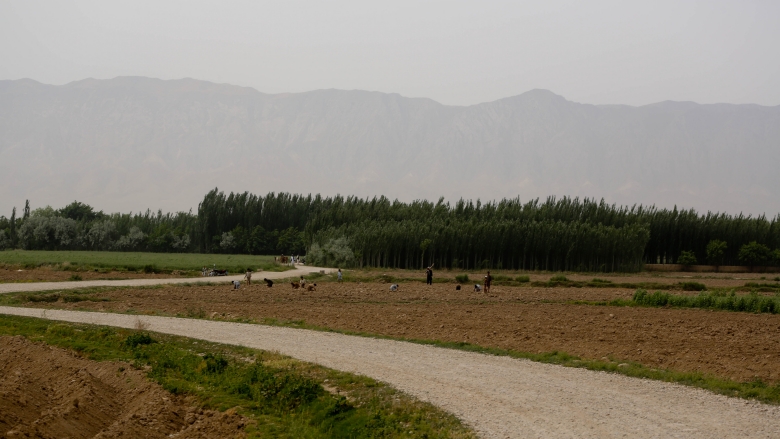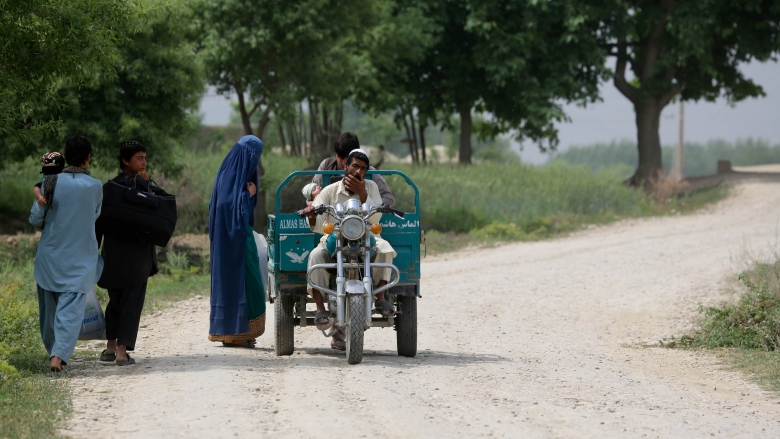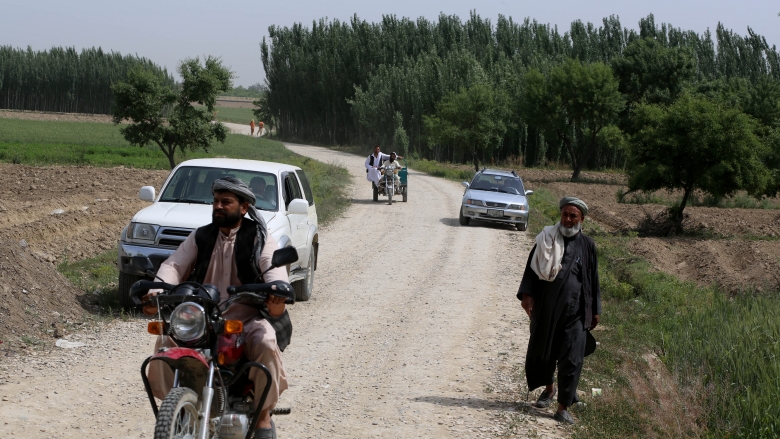Balkh district, Balkh Province – The lush fields around the village, the gurgling water, the wheat plants, and mud houses paint a rural idyll. The villagers of Temor Sarai are busy with their daily routine—the women giving water to their cows and the farmers working in their fields. Abdul Malik, 19, is out in the field, helping his father weed so that they can reap a good harvest this year.
Malik, a middle school student, is one among the hundreds of residents living in Temor Sarai village, northwest of Mazar-Sharif city in Balkh district, Balkh Province. He is thankful for the day gravel was put on the village’s dirt track. The work and life of the villagers have been transformed ever since, he says.
“Prior to this, we faced so many problems carrying our agricultural products on our shoulders to the main road that connects Mazar-e-Sharif to Sheberghan, the capital in neighboring Jowzjan Province. Now the truck comes to our farm and we load it right here,” says Malik. “When there was no road, we could not sell our produce in the city market, but now it is very easy.”
The Temor Sarai road passes through Temor Sarai and the nearby villages of Baba Yosuf, Deh Qaazi, and Chaar Sang. The all-weather gravel road extends from the Mazar-e-Sharif-Sheberghan main road and has facilitated travel and freight for the residents of these villages. Local businesses, such as the five water mills in Temor Sarai, have drawn more customers since the gravel road was built.
“Ever since the road was built, the transport costs of commodities have fallen. Residents can easily take their agricultural products to the market,” says Mawladad Ahmadi, 55, head of Temor Sarai Community Development Council. “If somebody gets sick, it is so easy to take him or her to the hospital now.”



